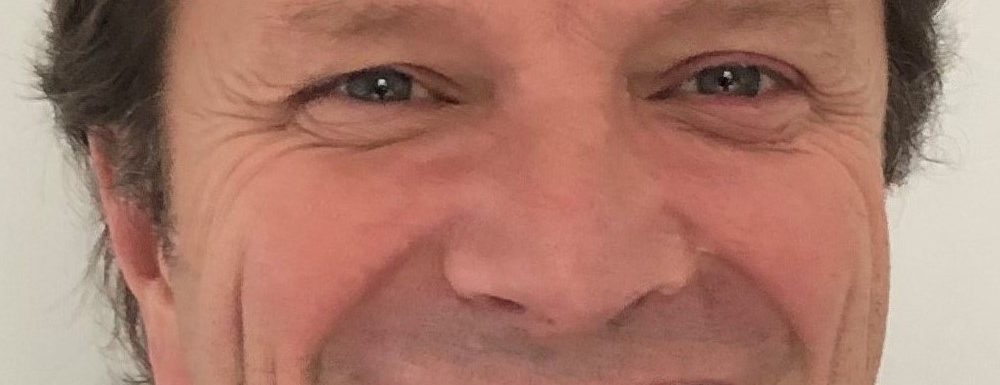Jean Luc Lavergne: Building a Business Keeping Plastic Out of Landfills

It’s fair to say that Jean Luc Lavergne, the man behind the Lavergne Group, is both a force to be reckoned with, and a partner to recycle with. By devoting his knowledge, time and energy to proving that a circular economy of plastics is not only possible, but can be profitable, Jean Luc has, over the past 35 years, grown his small Montreal-based recycling plant into a global leader within the plastic industry.
In 2005 the Lavergne Group commenced working on the daunting task of taking recycled plastics from discarded ink cartridges and reformulating them to bring the material up to the same standards as the “virgin” plastic required for the complex and demanding technical and chemical specifications required for closed loop manufacturing. The idea was to turn ink cartridges into ink cartridges, a task that’s not at all as straightforward as it sounds. And yet, through 13 years of trial and error, Jean Luc has managed to prove that it is possible to convert old plastics into virgin-grade stock, and that the transformation can be done at scale, while incorporating marine bound plastics.
Significantly, the Lavergne Group managed to prove their innovative process workable not only to their own, exacting, standards but to the satisfaction of HP, with whom they have formed a strong, mutually beneficial partnership. In Jean Luc’s view, product performance and quality were not stumbling blocks for his organization. Neither was the technology and equipment. The challenge lay in finding a receptive market, and with HP they found a company open for (green) business.
Theirs is a business relationship that has, over 12 years, achieved multiple, and sustainable in all senses, successes.
Every HP ink cartridge sold contains between 50 and 75 percent recycled content and, working with the HP team, Jean Luc moved on to tackle plastics in printer housings, a more complicated challenge both from a physical property perspective and due to the large quantity of plastic required.
In 2017 the Lavergne Group processed 3,200 tonnes of recycled plastic resin from old printers.
Together, the Lavergne Group and HP have kept vast amounts of plastic out of landfills while establishing not only that implementing new technologies that reduce waste makes you a responsible corporate citizen, but also that the closed loop processes can reduce supply chain costs while cushioning a company against future increases in material coats and increases sales. The success of the Lavergne Group and HP relationship helped HP deepen their partnership with a key retailer – Best Buy – and that led to more good things.
Best Buy collected used printers at their stores, the Lavergne Group processed the plastics and HP used it in new printers. This initiative, allowed customers long encouraged to return used ink cartridges through HP Planet Partners to bring in discarded printers as well. This complemented the recycled content used in HP’s printer supplies and FSC certified recycled content paper. The long term benefits that come from customer loyalty, born of the environmental messaging to which today’s consumers are keenly attuned, should never be underestimated.
Together Best Buy, HP and the Lavergne Group offered customers a convenient way to avoid discarding something into the waste stream, an option more and more people are looking for. At the same time as it gives shoppers an opportunity to purchase the first-in-class printers made with closed loop recycled plastics. Needless to say, such a relevant program also delivered engaged employees.
When you say “love you to the moon and back”… you should understand that that’s the equivalent of 19 times around the earth’s equator, or about the same as the 2.5 BILLION WATER BOTTLES recovered from Haiti, laid end to end, before becoming new HP “stuff” at The Lavergne Group<
That “we are all in this together” mentality is something Jean Luc understands, and acts on. There is global alarm over ocean and bioaccumulation of plastics and the Lavergne Group work done with HP and the First Mile Coalition in Haiti exemplifies the spirit of collaboration that Jean Luc is known for.
Well over 2.5 billion polyethylene terephthalate bottles have been diverted as a result of HP’s commitment to decarbonization and greener supply chains and HP is increasingly localizing production facilitating a reduction in the energy needed to transport materials for reprocessing, further increasing the environmental benefits of the closed loop system.
In 2017 the Lavergne Group processed 3,200 tonnes of recycled plastic resin from old printers. In a rare example of closed-loop recycling with the tech industry, hundreds of millions of used HP ink cartridges have now been processed, combined with plastic with post-consumer recycled plastics and used to manufacture new ones. The numbers alone are impressive and the reduction in carbon and water footprints associated with using closed-loop plastics makes the picture still more compelling but what also needs to be reused is the model offered here. The Lavergne Group’s process uses discarded plastics from a wide variety of sources, including water bottles and used clothes hangers, and it does so in a cost effective way.
What goes in the garbage doesn’t go in the profit margin, this fact alone should have a lot more companies signing on.














